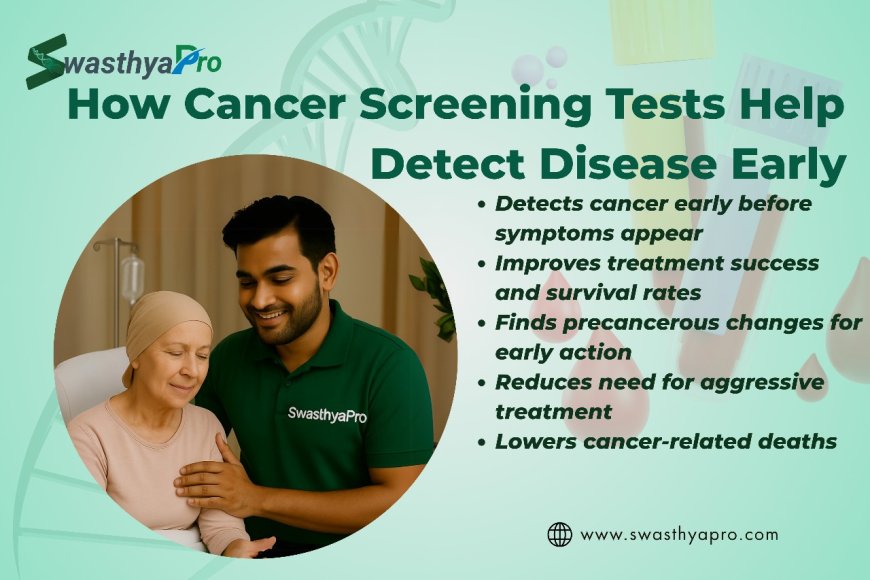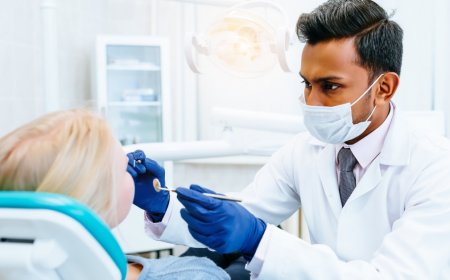https://www.newswireengine.com/the-science-behind-full-body-checkups-what-the-tests-reveal-about-you

In todays fast-paced world, health often takes a backseat until its too late. But when it comes to cancer, early detection is everything. A cancer screening test isnt just a formality its a proactive step that could save your life.
The earlier cancer is found, the easier it is to treat. The goal of a cancer screening test is to detect cancer before symptoms even show up. Below, well explore the top 5 most essential cancer screening tests ones everyone should know about, regardless of age or gender.
1. Mammogram The Gold Standard for Breast Cancer
A mammogram is an X-ray of the breast that can detect tumors long before they can be felt by hand. It is one of the most recommended cancer screening tests for women worldwide.
-
Who Should Take It:
Women aged 40 and above, or earlier if theres a family history. -
How Often:
Every 12 years, depending on personal risk factors and doctor's advice. -
Why It Matters:
Breast cancer is one of the most common cancers in women, but with routine cancer screening tests like mammograms, survival rates are significantly higher due to early detection.
2. Colonoscopy The Life-Saving Test for Colorectal Cancer
A colonoscopy allows doctors to visually inspect the colon and rectum for abnormal growths or polyps, which can be removed during the procedure.
-
Who Should Take It:
Adults aged 45 and older, or earlier if theres a family history of colorectal cancer. -
How Often:
Every 10 years, if no abnormalities are found. -
Why It Matters:
Colon cancer often shows no symptoms until its too late. A cancer screening test like colonoscopy not only detects cancer but can prevent it by removing polyps before they turn cancerous.
3. Pap Smear and HPV Test Cervical Cancer Detection
The Pap smear checks for precancerous or cancerous cells on the cervix, while the HPV test detects the virus that causes the majority of cervical cancers. Together, they form one of the most critical cancer screening tests for women.
-
Who Should Take It:
Women aged 21 to 65. -
How Often:
Pap smear every 3 years or combined Pap and HPV test every 5 years from age 30. -
Why It Matters:
With regular cancer screening tests, cervical cancer is one of the most preventable types of cancer. These tests catch cellular changes before they become deadly.
4. PSA Test Prostate Cancer Screening for Men
The Prostate-Specific Antigen (PSA) test measures PSA levels in the blood. Elevated levels can indicate prostate cancer, one of the most common cancers in men.
-
Who Should Take It:
Men aged 50 and older, or 45 if at higher risk (family history or African descent). -
How Often:
Every 12 years depending on results and risk factors. -
Why It Matters:
Prostate cancer is usually slow-growing but can be life-threatening if undetected. This cancer screening test offers a chance to monitor, treat, or rule out danger early on.
5. Low-Dose CT Scan For High-Risk Lung Cancer Cases
A low-dose computed tomography (CT) scan is a type of X-ray that gives detailed images of the lungs to spot tumors early, especially in people with a history of heavy smoking.
-
Who Should Take It:
Adults aged 50 to 80 with a 20-pack-year smoking history who currently smoke or quit within the last 15 years. -
How Often:
Annually, as long as the individual is still at risk. -
Why It Matters:
Lung cancer is the deadliest of all cancers, largely because its found too late. This cancer screening test can reduce lung cancer deaths by catching it in its earliest, most treatable form.
Why These Tests Matter
Each cancer screening test on this list targets a different type of cancer, but all serve the same purpose: catching cancer early. Early detection leads to:
-
Better treatment options
-
Higher survival rates
-
Reduced treatment costs
-
Lower emotional and physical strain
These arent just checkboxes for your medical file theyre lifesaving decisions.
Take Charge of Your Health
Most people delay screenings due to fear, cost, or lack of awareness. But knowledge is power and taking a cancer screening test is one of the most powerful steps you can take for your health.
? Talk to your doctor
? Follow age-specific guidelines
? Stay consistent with your checkups
Because what you do today can determine your tomorrow.


































